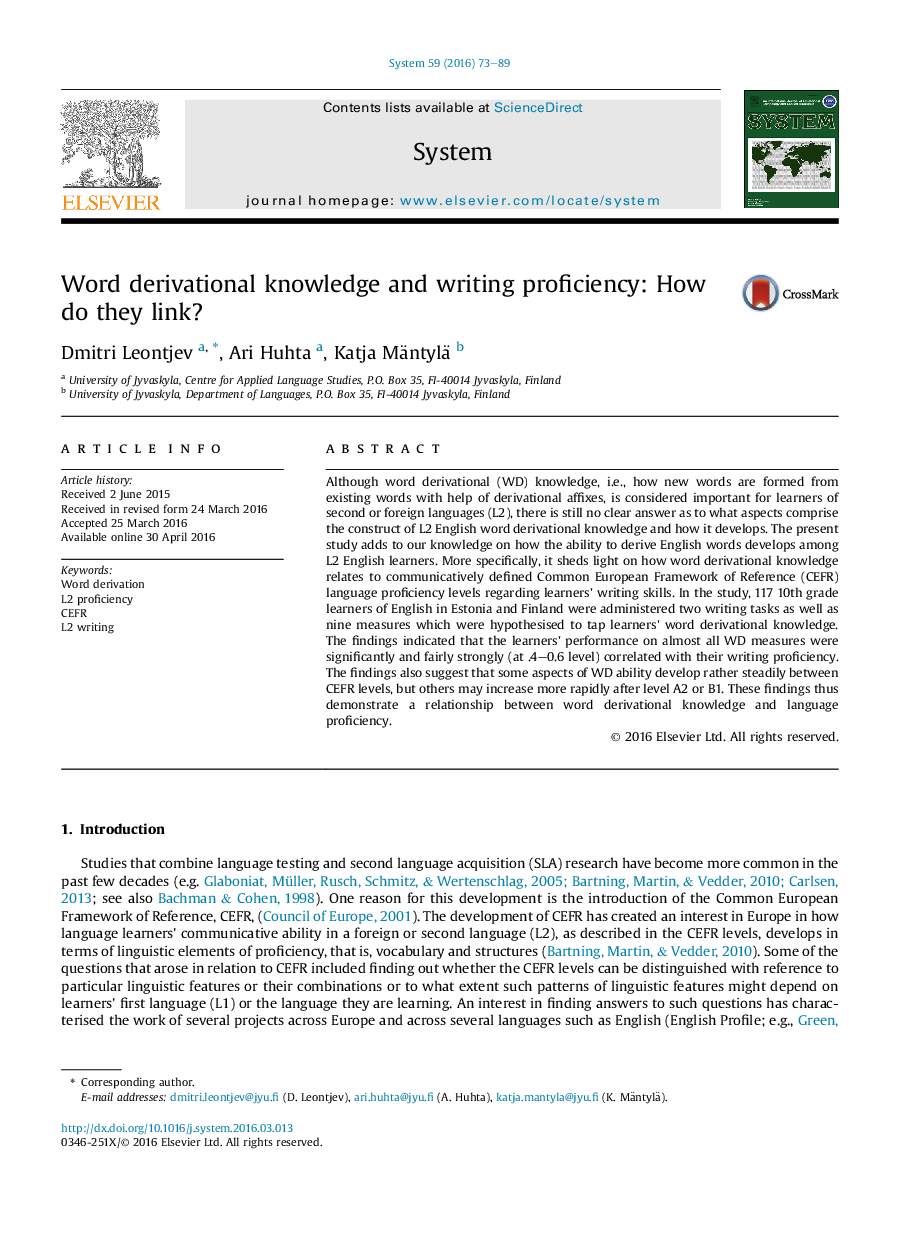| Article ID | Journal | Published Year | Pages | File Type |
|---|---|---|---|---|
| 372960 | System | 2016 | 17 Pages |
Although word derivational (WD) knowledge, i.e., how new words are formed from existing words with help of derivational affixes, is considered important for learners of second or foreign languages (L2), there is still no clear answer as to what aspects comprise the construct of L2 English word derivational knowledge and how it develops. The present study adds to our knowledge on how the ability to derive English words develops among L2 English learners. More specifically, it sheds light on how word derivational knowledge relates to communicatively defined Common European Framework of Reference (CEFR) language proficiency levels regarding learners' writing skills. In the study, 117 10th grade learners of English in Estonia and Finland were administered two writing tasks as well as nine measures which were hypothesised to tap learners' word derivational knowledge. The findings indicated that the learners' performance on almost all WD measures were significantly and fairly strongly (at .4–0.6 level) correlated with their writing proficiency. The findings also suggest that some aspects of WD ability develop rather steadily between CEFR levels, but others may increase more rapidly after level A2 or B1. These findings thus demonstrate a relationship between word derivational knowledge and language proficiency.
